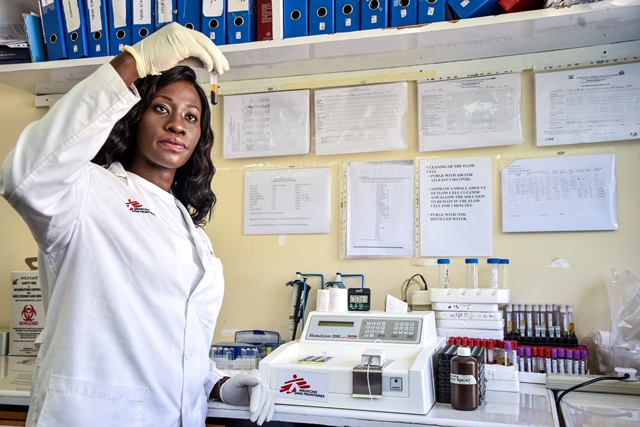New applicants to MSF are always told the most challenging aspects of doing humanitarian work also provide the most rewarding and enriching experiences to our fieldworkers, both on a professional and a personal level.
Spending nine to 12 months providing lifesaving care to some of the world’s most vulnerable people is a humbling experience, since the needs often outstrip what is possible for healthcare professionals to provide. Many fieldworkers come back with a renewed sense of empathy, which is essential to being a great healthcare provider — something that is true whether someone is a nurse, doctor, pharmacist or any other kind of health worker.
But it’s important to note that for international healthcare workers in the humanitarian sector, field assignments are not just a one off but rather often a key part of a long career. In fact, many new applicants are not aware that MSF wants people to stay and grow within the organization and to take on more responsibility as part of that growth.
To encourage and enable this type of career development, MSF offers training and career planning to our fieldworkers from their very first assignments onwards.
Our internationally hired fieldworkers are often put into situations where they have to go outside of their comfort zones as professionals — whether they are being exposed to new diseases or pathologies, having to adapt to new cultures or living 24 hours a day with the same people they work with. In addition, international fieldworkers often supervise dynamic, multidisciplinary teams in very trying circumstances.
Many of our field workers point to these experiences as contributing greatly to making them better and stronger leaders.
Juniper Gordon started working with MSF seven years ago as a mobile medical team leader and nursing supervisor and through her experience, ongoing trainings and support from the organization she is now working as a medical coordinator for MSF’s emergency response team.
“Working in humanitarian aid gives you a very different perspective on the everyday challenges healthcare workers in many countries face in trying to provide even very basic services on a daily basis,” says Gordon.
“I’ve learned to really appreciate how well our healthcare system works in Canada — even though it still has its challenges. Working with MSF I’ve developed skills in cross-cultural communication, diplomacy, setting up health programs and hospitals and managing large teams with various medical backgrounds. The art of flexibility and being able to adapt to changing contexts are invaluable skills I have gained working in humanitarian aid and can be readily applied when working in Canada.”
Since 2003, Heather Thomson has been on been on nine field assignments with MSF in seven different countries in sub-Saharan Africa and in Yemen in a variety of roles including an outreach nurse, a project coordinator and a medical coordinator.
“Through my MSF field assignments, I’ve worked with the local medical teams to deliver health care in small remote villages, refugee and internally displaced people camps, and large urban centres with active fighting,” says Thomson.
“When I return to Canada, I work as a nurse practitioner in a community health centre in Ottawa. Here I provide primary healthcare to newcomers to Canada, namely refugees, some of whom have come from the very settings where I have been with MSF,” she says. “During clinical encounters with these newcomers, my MSF experience has given me a better understanding of their refugee journey, including a few words in Swahili and Arabic as greetings and medical terms.”
“When I share with them that I have visited their country, say Yemen, it has created an instant connection that has helped to develop a therapeutic relationship. I do plan to continue with MSF field assignments, which have enriched my knowledge and skills as a nurse practitioner in Canada to provide primary healthcare for multicultural Canadians.”
How do I know if MSF is the right fit for me?
We need people at all levels of our operations, from coordination positions — such as medical coordinators and country directors — to technical advisors in our various headquarters around the world.
Professionals who also speak French or Arabic, have some global health experience or backgrounds working in rural and remote northern communities are especially sought after.
Where do I go for more information?
To find out more about working for MSF and how the recruitment process works, please visit www.doctorswithoutborders.ca
This article was submitted by Doctors Without Borders/Médecins Sans Frontières (MSF).


